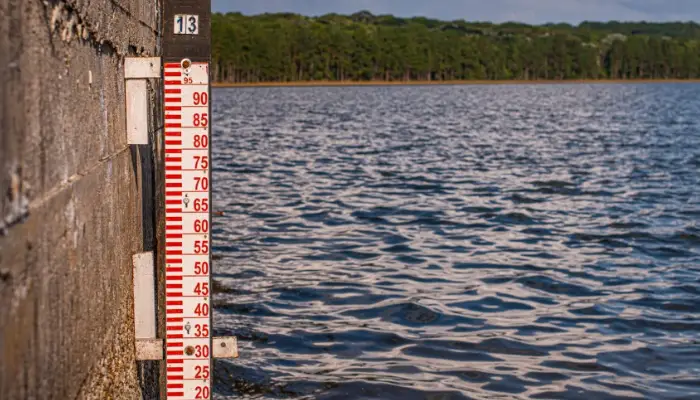Customer expectations around how water companies protect the environment are higher than ever.
As 2021 came to an end and the water industry reflected on priorities for 2022 it is clear that the sector is unanimous in its commitment to delivering better customer service, improving water efficiency and reducing leakage. However, as was stressed at the UN climate summit, COP26, what’s become a non-negotiable for every industry is addressing the challenges of climate change. Customer expectations around how water companies protect the environment are higher than ever. There’s also recognition of the role the industry plays in reducing emissions and achieving the UK’s ambition to reach net zero by 2030. Although progress has been made to date, a smart water metering rollout would be a game-changer in helping to reduce water demand, secure future water supplies as well as protect local environments. Given the urgency of the climate crisis, more positive support from governments and regulators is needed to encourage, enable and accelerate a comprehensive smart meter rollout.
Breaking down the cost benefits of smart water metering
The positive impact of smart water metering is crystal clear – for consumers, the environment, and for the industry too. By collecting and presenting valuable data in near real-time, smart meters allow for more accurate billing and greater transparency around day-to-day usage. According to independent research carried out by Frontier Economics and Artesia last year, a coordinated rollout of smart water meters focused on the next price review period could deliver £1.9 billion in net benefits to society including improvements to network management, leakage control, water efficiency and by avoiding the need for other water resources.
Modelling the costs and benefits of smart water metering over a 30-year period, the analysis found smart metering would deliver £4.4 billion of benefits against a cost of £2.5 billion to roll out. For each £1 spent on metering, the report calculated an environmental benefit of £1.73 for society, the industry, and householders. The return on investment would mean water companies could incur lower total costs, which could enable reduced water bills for households over time. Although costs and benefits would vary due to the specific circumstances of each area such as the existing meter penetration and level of water scarcity, the analysis highlights that each region in England and Wales would gain.
Improving water efficiency is clearly a key priority for the water industry. Last year, calls to double spending on water efficiency at PR24 were voiced by independent chair of the Senior Water Demand Reduction Group (SWDRG) and chief executive of Waterwise, Nicci Russell, who wrote to senior figures in government, the Environment Agency, Ofwat and the chief executives of water companies setting out some early conclusions to ongoing discussions to address demand reduction.
Understanding the environmental benefits
Smart water metering also provides a clear environmental benefit. According to research from Waterwise and Arqiva, fitting one million smart water meters in the UK each year for the next 15 years could save one billion litres of water a day by the mid-2030s, and reduce the UK’s overall current greenhouse gas emissions by up to 0.5%, a meaningful contribution to the UK’s overall target. Smart metering would help water companies to support customers to lower their water consumption and to address leakage on customer-side pipes. In turn, these actions could contribute to lower carbon emissions and reduced operational costs.
This is probably the first time in history that the environment has been so high on the agenda for governments, businesses and consumers worldwide. Right down to the individual level, people want to act. Switching to a smart water meter gives consumers the opportunity to take matters into their own hands, to help identify leaks, reduce usage and play a role to address climate change.
The change in public perception
Although one of our most precious natural resources, water is often the forgotten utility, and many people may think that they can’t save with UK consumers often concentrating their attention on gas and electricity prices instead. However, research from Waterwise has found encouraging signs that the public’s perception is shifting, and the majority are receptive to smart water metering. Nine in ten already have smart technology in their home and 87% would consider getting a smart water meter if it would lead to a reduction in bills and was fitted for free.
The research highlights that metered customers are more likely to be aware of the water scarcity challenges we face in the UK, are more likely to be aware of their own water use, and are much more likely to act to try to save water.
Looking ahead
Combined, these findings make a clear social and environmental case for smart water metering. The expected gains to society far outweigh the potential costs. The Environment Agency has warned that the UK could see water shortages by 2050 if action is not taken to conserve supplies. Collectively, the UK sends a fifth of its water supply down the drain and the average consumer in England and Wales uses 142 litres of water a day. This message was reinforced by the recent release of the regional resource plans from the five regional groups across England. Those plans highlight that England could be in deficit by over 4,017 million litres a day if no action is taken. That is around a further 1,500 million litres per day more than estimated in the 2020 National Framework for water released by the Environment Agency.
An accelerated and comprehensive rollout of smart water meters can make a significant contribution towards preventing water shortages. The positive news is that this is both achievable and realistic based on current technology and services. However, to realise the benefits of smart water metering, there’s an urgent need for governments, Ofwat and the Environment Agency to come together to develop policies and provide a suitable settlement in the next AMP and PR24 periods which can enable the water companies to invest in and deliver a comprehensive smart meter rollout.
Views

Living with less: planning for a water-scarce future

The indisputable benefits of smart water metering

Bringing a Flexible Approach to Smart Water Networks at scale
